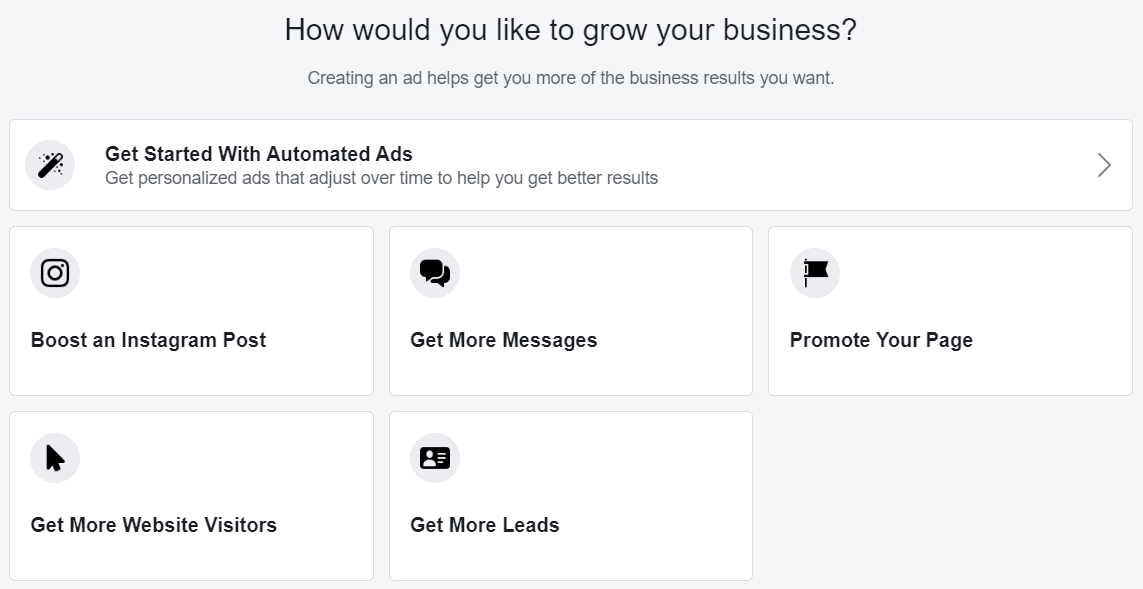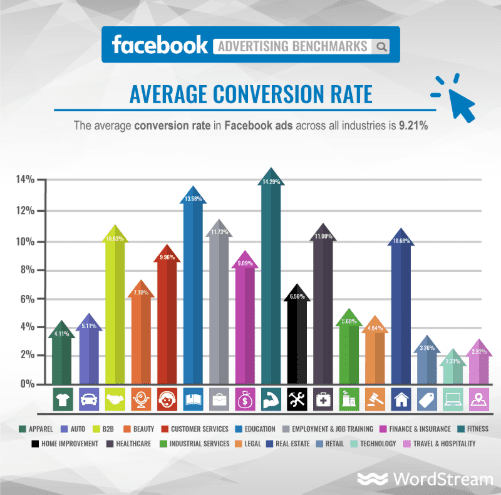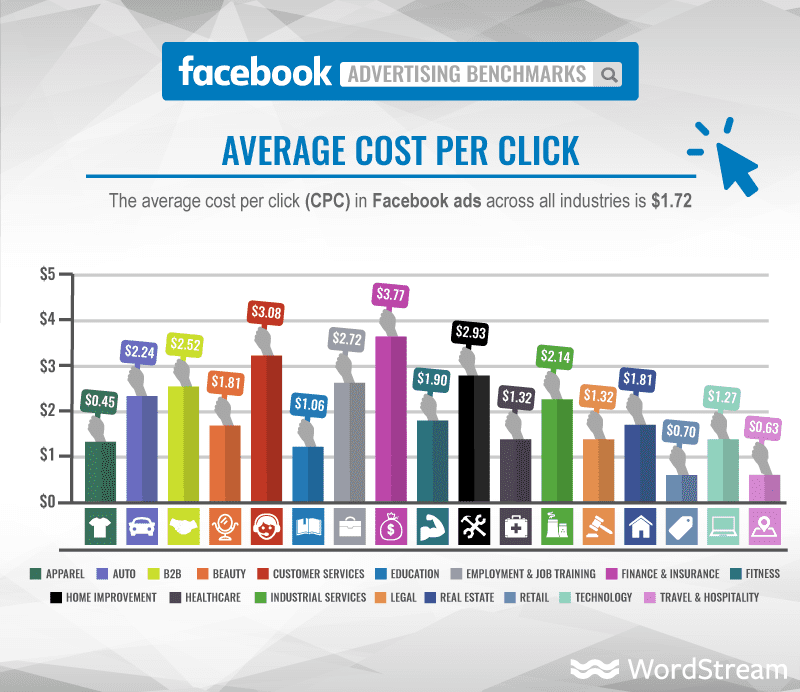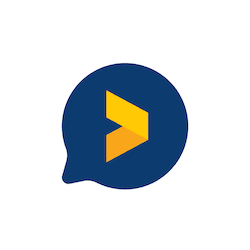Conversion Rate for Facebook Ads, What to Expect
Last edited: November 1st, 2024

Average Facebook conversion rate is said to be at around 10%. Is it really and what does conversion rates even mean?
Let’s go over:
- Definition of conversion rate
- Basics of Facebook advertising
- Factors impacting your conversions on Facebook
- What’s a good conversion rate for your FB ads
- How to use testimonials in FB ads
What to Expect When Creating Ads on Facebook
Social media platforms are perfect for marketers looking to maximize their advertising ROI. One of the most popular advertising platforms for marketers is Facebook, with more than 2.6 billion monthly active users as of Q1 2020.
Facebook is the king of social media advertising, and many businesses use it to make huge returns on investment from marketing.
Despite Facebook’s lucrative status among marketers, there are a few things to keep in mind in order to successfully advertise on Facebook. A successful ad is an ad that gets customers to convert and buy, so it’s important to understand how conversion rates work on Facebook.
Anyway, here’s what you can expect from your Facebook ads!
What is Conversion Rate?
Before we get into the topic of Facebook ads, let’s clarify what exactly is a conversion rate.
In simple terms, the conversion rate is a metric we use to measure the success of an ad. More precisely, this metric tells the exact percentage of visitors that convert from our ad.
The term “conversion” can vary depending on your goals. Some conversion events include:
- Purchase made
- Get visitors to complete a survey
- Newsletter signups
- Ebook downloaded
- Book a discovery call
- Book a meeting
- Visited your website/careers site
Conversion Rate Formula
The conversion rate percentage formula is simple:

(Number of conversions / Number of visitors) x 100
So, if your Facebook ad gets 2 out of 50 people to buy a product (2/50×100), that’s a 4% CR.
Your ad could sell 100 products and still be less profitable than the one that sold 20, and that’s why conversion rate is important. The better the conversion rate, the better the profit.
Factors Impacting Ad Conversions
Once you’ve determined what it is you want people to do, it’s time to create the ads.
You spend time crafting the visuals and wording your offer in a way that speaks to the target audience.
Don’t forget to account for the following factors!
Target Audience
Is your target audience B2B or B2C or job seekers?
Depending on these factors your conversion rates will most probably look very different. Generally speaking, converting B2B customers from Facebook is more difficult than converting B2C.
However, the value of one B2B customer can be tenfold to what a single B2C conversion brings you.
Price of Product
Impulse buying is easy, when a product is in the lower price range. If I need to spend dozens of dollars, I’m more likely to consider the purchasing decision a little longer.
Let alone if I see an ad for the perfect car. It’s very unlikely it’d buy it with my credit card straight from the ad.
That’s why you need to do market research to be successful in digital marketing. By knowing your customers and the typical purchase journey, you can target them with the right message at the right time.
Saturation of Market and Competition
In a highly competitive market with plenty of competition, it’s harder and also more expensive to stand out from the competition.
Once you’ve done your market research thoroughly, you can focus on figuring out:
- The best way to reach your target audience
- Find a new target audience that competitors haven’t figured out yet
Placement
Where are your ads shown? In the side bar on desktop or on Facebook marketplace among other related products?
Knowing how your customers behave and where they’re most likely to convert is key in succeeding.
Country
Use localization as much as you can. Facebook allows you to target
Campaign Objective
It’s easier to get people to download a free guide than it is to get them to open their wallets.
The type of campaign you’re running plays a huge role in how your overall conversions look like.
Facebook Advertising
If you’re going to advertise on Facebook, it’s important to understand how the platform works.
Facebook has a lot of users and is popular among all demographics. However, it’s important to note that in the past few years, the average age of Facebook users has increased. It’s a lucrative platform for targeting adolescent, high-income earners, and it will likely stay so.

According to Facebook’s financial reports from 2019, only 6% of Facebook Ad revenue is from desktop users. This means that 94% of ad revenue comes from mobile, so keep that in mind when you start creating ads. Your ads should always be fully compatible for mobile.
All kinds of companies use Facebook to advertise. Some industries may see better (or I should say more frequent) results, but Facebook’s CPC (cost-per-click) and targeting algorithm is built to fit all advertisers. It’s also perfectly compatible with local geo-advertising.
Facebook advertising is clearly profitable, but what kind of results can you expect?
What is a Good Conversion Rate for Facebook Ads?
Conversion rate is a metric that’s dependant on a lot of factors. When it comes to Facebook, conversion rate statistics will vary depending on the industry you’re in, as well as your campaign goals.
According to Wordstream’s Facebook Ad benchmarks, the average conversion rate for paid Facebook ads across all industries is 9.21%. Following this conclusion, we could say that a “good” conversion rate for your Facebook Ads should be around 10% or more.

Source: Wordstream
However, the average conversion rate is not really helpful to our goals here.
To determine a good Facebook ad conversion rate for your business, you need to look at industry-specific conversion rates. As we can see, the fitness industry leads the way with a 14.29%, while the travel industry struggles with only 2.82% conversion rate.
Does this mean that Facebook ads are bad for the travel industry? Certainly not.
We must keep in mind that these numbers only refer to conversions, and not the actual money made or spent on ads. Although a fitness company may sell a supplement for $20, a company in the travel industry could potentially book a client for $500 per day, yet the conversion rate is counted all the same. This explains some of the industry-specific discrepancies when it comes to conversion rates, as some products are simply easier to sell than others.
Also, the CPC (cost-per-click) metrics show us that fitness ads cost three times as much as the ads in the travel industry, and that’s something to keep in mind.

Source: Wordstream
Regardless, increasing your conversion rate is still a good goal, and every business should strive to maintain an above-average conversion rate within their industry.
On the other hand, marketers like Neil Patel would disagree with this approach. In his view, chasing above-average conversion rates is difficult, and business owners should simply focus on improving their current rates. If your business currently has a 3% conversion rate on Facebook ads, you should aim to improve that number to 6%, and so on.
What to Expect From Your Facebook Ads Conversion Rate
Business owners getting into Facebook advertising can expect around 2-3% conversion rate right off the get-go. Most reports show this number to be an average, and it’s up to you to make the necessary changes to increase it.
The end-goal should always be to rate above the industry standard, but also to keep improving your numbers as you go.
To achieve the industry’s top conversion rates for Facebook ads, you need to optimize a lot.
Most companies spend thousands on ad optimization, and losing money is to be expected until you hit the winning combination. It takes time to study your market, your competitors, and to get a feel of what exactly it is that your audience wants to see.
Check out this link if you want to learn more about conversion rates and how to improve it.
How to Use Testimonials in Facebook Ads (3 Useful Tips)
We increased sales by 139.16% with testimonials while reducing advertising budget by 21.81%.
Here are our three useful tips.

1. Nurture Potential Leads by Using Video Testimonials in Retargeting
Thanks to Facebook having built-in retargeting pixels and audience options, you can rather easily retarget your potential leads. As you already have more data available on these people, you can offer them individualized content.
Show them a video testimonial from someone they can relate to (same age group, location, …).
2. Drive More Sales by using Text Testimonials in Your Ads
Even though videos are a great way to boost conversions, text testimonials can also be used to increase trust and to drive more traffic to your site.
Add text testimonials to your Facebook ads to convince people that you’re the best option out there.
Best way to get more Facebook reviews is to take your Facebook review link and send it to past customers.
3. Use Video testimonials in your Facebook Ad Landing Pages to Get More Sales
By having a video testimonial on your checkout page, you can increase sales by 32%. It’s always a good idea to have video testimonials near CTAs to function as supporting copy.
4. Collect More Facebook Reviews
It’s best to keep your online presence top-notch especially on platforms you advertise on.
Therefore, collecting more Facebook reviews automatically is a great idea to boost your credibility and conversion rates.
In Conclusion
Conversion rate is an important metric in advertising and you should do your best to optimize it.
This article covered some key points regarding Facebook advertising, such as:
- What the conversion rate numbers mean
- Facebook as an advertising platform
- Advertising metrics to look at and improve
- What to expect from your Facebook ads conversion rate
Keep improving your sales strategies, and don’t forget to always do your research.
Furthermore, you can use testimonials to improve your Google ad conversions as well!
